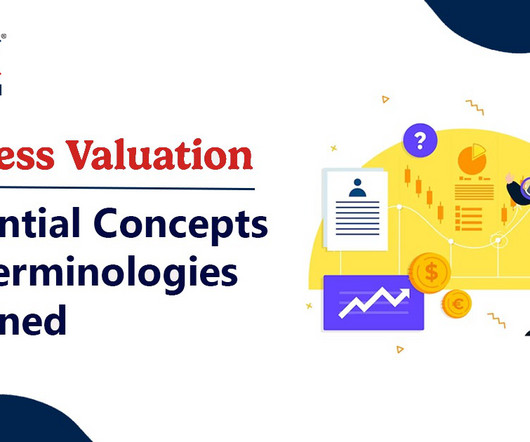Business Valuation 7: Essential Concepts and Terminologies Explained
RNC
JULY 13, 2023
In the dynamic world of business, valuation plays a pivotal role in understanding the worth and potential of a company. Business valuation encompasses a range of methodologies, techniques, and terminologies that are crucial for both investors and business owners.
















Let's personalize your content